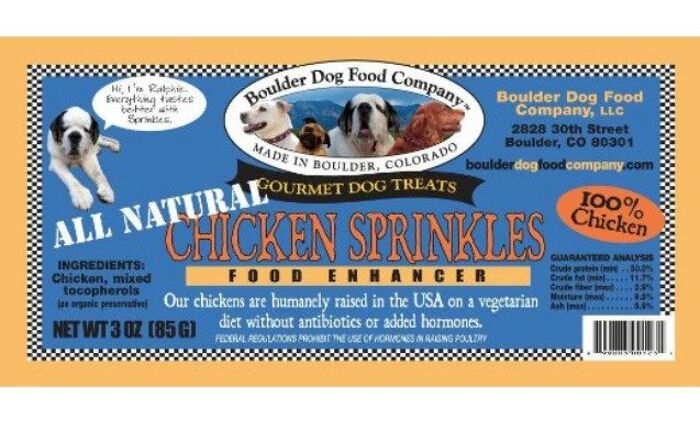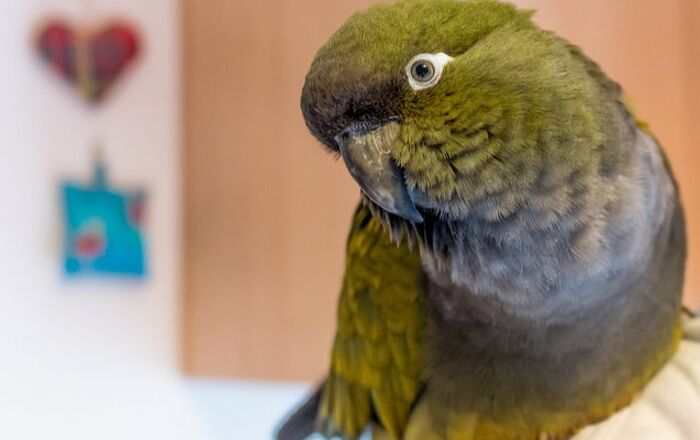
Have you ever wondered why small dogs live longer than large dogs? Well, a team of researchers from the United States sure did and that became the catalyst behind the 10,000 Dog Aging Project.
Let’s face it, our pets are important members of our family. And just like their human counterparts, we’d do anything to ensure their health and safety. Which is why you might want to sit up and take notice of a massive joint study that is about to be undertaken by the University of Washington School of Medicine and the Texas A&M University College of Veterinary Medicine & Biomedical Sciences.
In fact, you may want to do more. You may want to become involved!
You see, it’s called the 10,000 Dog Aging Project and its ultimate goal is to help your pooch live a healthier, longer life. As the name implies, it’s all about aging and it’s enlisting the help of 10,000 volunteer dogs over the course of 10 years to learn more about how to do it better.
Pooches must be US-based (sorry, Canuck Canines, if you want to get involved visit Darwin’s Ark who are heading up the Canadian version of this study) but beyond that, there are no other qualifiers. That means that if you’re thinking your pooch may not measure up, think again. They’re accepting dogs of every age and breed. Small dogs, large dogs, medium-sized dogs and male or female. Not neutered? Not a problem. Spayed or neutered is not part of the criterion for participation. Neither is their level of health. Whether your pooch is in the prime of his life or struggling a little, he’s a candidate for this all-inclusive study.
Related:Why Senior Dog Wellness Checkups are Important
This project has been building over a number of years with an official launch announced in November 2019. That said, they are still building their roster of volunteers and are still accepting nominations from pet parents who may be interested in having their dog take part. Simply log on to www.dogagingproject.org and complete the application form for your chosen pooch (only one dog per household can be nominated). This secure user portal will ask for comprehensive information on your pet’s health and lifestyle as well as veterinary medical records to ensure they’re working with the most accurate data available. Ultimately you will also need to provide a stool sample to help ascertain gut health and DNA swab from your dog’s mouth which will help with the genome portion of this study down the line.
What is expected of you? Over the 10-year course of the study, you will be expected to be a good pet parent and visit your veterinarian for a wellness exam each year. There may be follow-up surveys throughout the study that ask you to provide updates on your pet’s diet, current health and behaviors. You may also be required to conduct easy cognitive or exercise tasks with your pooch and report back to the study team.
There will be two sub-sets of dogs that are monitored more closely. One involves 1,000 pooches who may require a little extra work from your veterinarian. The collection of blood, stool, urine, saliva and hair samples (collection kit provided by the project) will be requested. The second sub-set will be made up of just 500 dogs and involve a test drug (see details below). Now if you’re already doing the math and envisioning sky-high vet bills, the project recognizes this could be an issue for some owners and is developing a program to help offset those costs.
According to Daniel Promislow who is an expert in the biology of aging and a Professor of Pathology at the University of Washington School of Medicine, you as the pet parent will have become what they like to call a “Dog Aging Project citizen scientist”. Even your little buddy gets his own title as a member of the Dog Aging Project pack. Cute, right?
So, while pet health studies are quite literally de rigueur these days, its the sheer volume of test subjects involved in this particular one that makes it so unique. Tracking 10,000 of our four-legged buddies (hey, even four legs isn’t mandatory) over the course of a decade allows researchers to capture sizeable quantities of data that can be analyzed throughout the process for patterns and red flags to determine how a dog’s genes, habits and environmental influences determine how well he ages.
According to the researchers, it’s not just about extending your dog’s lifespan but his healthspan – which is that period of life spent free from disease. My guess is that with all the research fire-power being poured into this project, the data gathered is also targeting how to help improve the healthspan of humans. Which makes sense. I mean, if we’re living in the same environment, it would be foolish not to look for a correlation. Right?
Related:How to Keep Your Senior Dog Active
And because this is all voluntary, its simply business as usual for you and Rover. You continue with your regular routine, visit your usual veterinarian throughout the year and feed him his favorite foods and treats.
But at the other end, there will be more than 40 research professionals in the fields of veterinary medicine, health and longevity involved in this research. As Matt Kaeberlein, another Professor of Pathology at the University of Washington School of Medicine states, “Aging is the major cause of the most common diseases, like cancer and heart problems. Dogs age more rapidly than people do and get many of our same diseases of aging, including cognitive decline. They also share our living environment and have a diverse genetic makeup. This project will contribute broadly to knowledge about aging in dogs and in people.” Yes, just as I thought!
Surprising to me is that there are currently no standard measures to track the prognosis of our best buddies as they age and become sick. According to Dr. Kate Creevy, Chief Veterinary Officer for the project, “When we see a dog, we’ll say, ‘Wow, that dogs looks really good for his age,’ or ‘That dog doesn’t look so good for her age,’ but we can’t easily put that into any kind of objective description.”
That’s all about to change because this is where the 10,000 Dog Aging Project is determined to make a difference. Specifically, the research teams are looking to establish the following four tools:
Now, this last tool may seem controversial to some. Of the 10,000 participants, approximately 500 of the middle-aged, larger breeds (40-pounds and over) will be asked if they would participate in a clinical trial of rapamycin. Its currently a drug taken by humans to prevent the rejection of transplanted kidneys and according to the American Veterinary Medical Association, its an “…immunomodulatory agent and cancer chemotherapeutic drug used in human medicine. Low doses of the drug have been shown to extend the lifespan of mice along with conferring other age-related benefits.” So, these 500 will be part of a double-blinded, placebo-controlled trial of rapamycin for three years after which their health will be followed for an additional two years.
Related:University of Washington to Study New Dog Anti-Aging Drug
Apparently, rapamycin has already been used in a small safety study on dogs and it presented no dangerous side effects. For the purposes of this particular project, the drug is to be administered by veterinary specialists located near the participating dog. So, under controlled circumstances and with appropriate monitoring by a medical professional.
Through all the articles I’ve read, it’s still not clear what it would take for a dog to qualify as a candidate for this type of drug. If it’s used specifically with an eye toward prolonging life, it may be a pet that is considered older or perhaps his genetics suggest a propensity toward certain ailments such as cancer. Ultimately, he’s your pet so you get to make the decision on whether you want him to be a candidate for this sub-set.
The 10,000 Dog Aging Project is a long-term commitment that many may not be up for. But for those that are, it’s a chance to have your pooch’s life benefit the healthy aging of future generations of dogs. Just something to think about.














